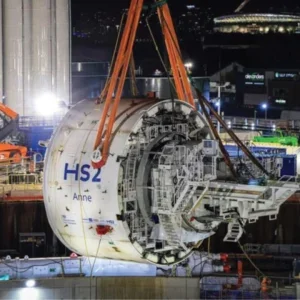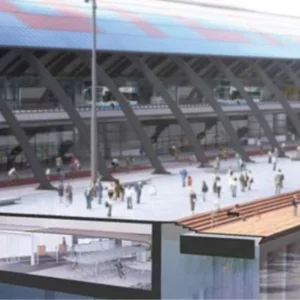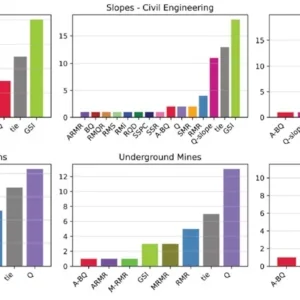The construction method chosen for the 8.3km long tunnelling section of the Imigrantes road project in Brazil features drill and blast including Atlas Copco jumbos and sprayed concrete support lining.
The $ 310M contract for this new road was signed at the end of 1999 with the Italian company Impregilo SpA as a member of the consortium. This is currently one of the most important projects taking place in Brazil and is considered an engineering challenge when it comes to protecting the environment.
The 18km descending road starts in the uplands with a 4.7km long section, which is followed by one passing through the mountain where it cuts through Mata Atlantica, a region of great biodiversity. It includes four tunnels and ten bridges and reaches a plain close to sea level.
Severely neglected economically in the past, this plain is now an environmentally protected area. Today it is part of the Parque Estadual da Serra do Mar (Protected Biosphere Reserve of Mata Atlantica) recognised by UNESCO.
Compared with the old, ascending road, considered one of the most beautiful and well built roads in the world, with its 3,925m of tunnelling, the new road has four tunnels adding up to 8,254m.
At first the Italian partners in the consortium demonstrated their preference for the wet method of sprayed concrete tunnel lining using piston pumps rather than the rotor spraying pumps used predominantly in Brazil.
Faced with this problem, Asserc, Aliva‘s dealer in Brazil, offered a complete Aliva AL 500 system, with a rotor-spraying pump for a test period.
After the one month commissioning period the equipment began to demonstrate its capacity and versatility but it took two more months to overcome customer and user resistance.
Asserc started negotiations on the AL 500 but, due to high import taxes, and since the company was competing with a Brazilian manufacturer and CIFA of Italy which were offering much lower prices, it was informed that it was out of the deal.
Asserc decided to offer a one part Brazilian made robot, which would include the imported boom AL307, the imported AL285 and their connections and panels, and manufacture in Brazil the hydraulic jacks, boom support and platform, the hydraulically elevated frame for the spraying rotor machine and some other components, to be assembled in a conventional truck supplied by the customer.
The idea was well accepted from the start since it would reduce the capital cost by 30%. It resulted in a multiple order from Ebec (Engenharia Brasileira de Construções SA), within the C R Almeida group. This included two ALB501 systems with AL307 booms, and one ALB502 with an AL302 boom.






